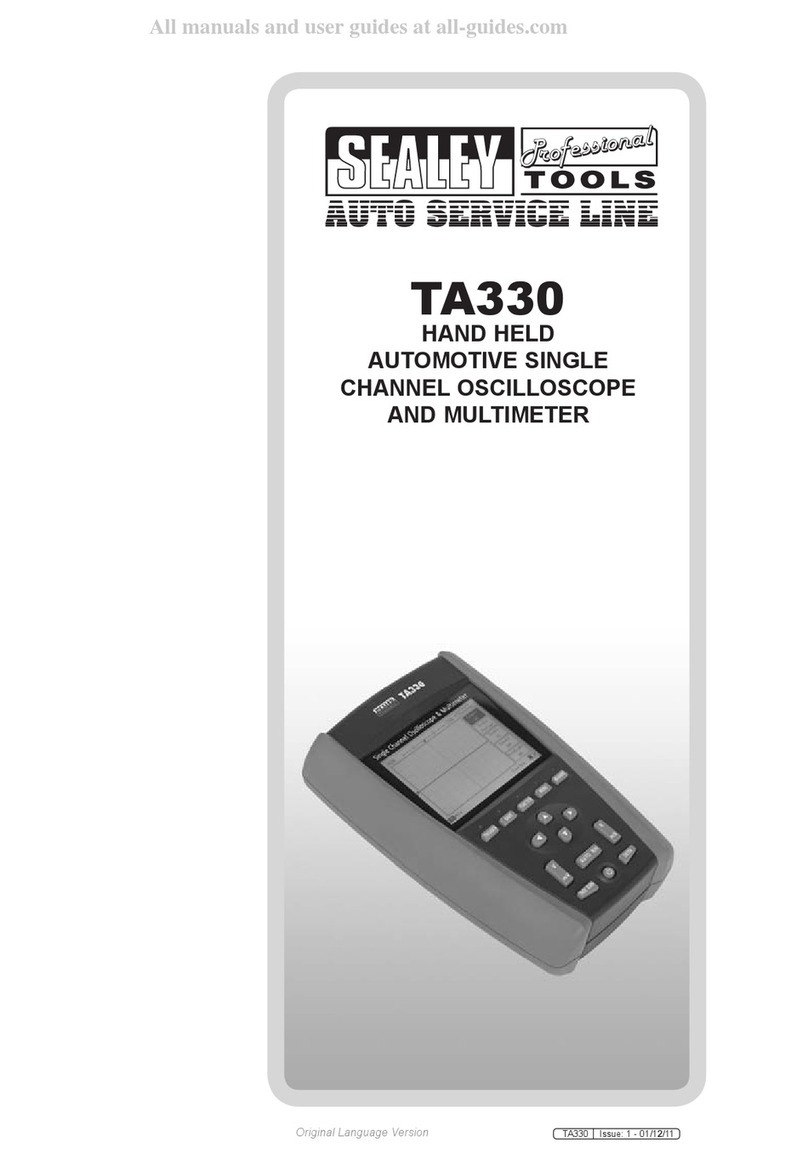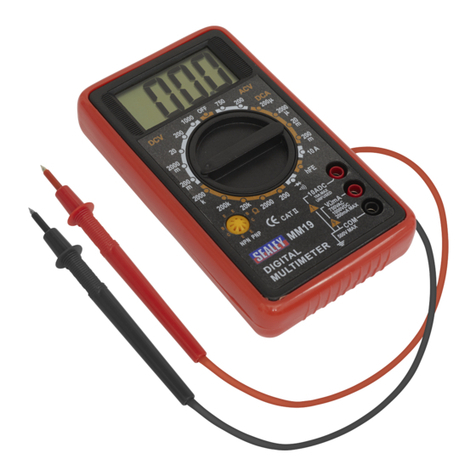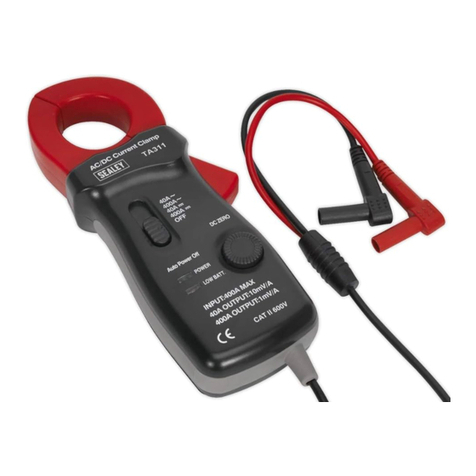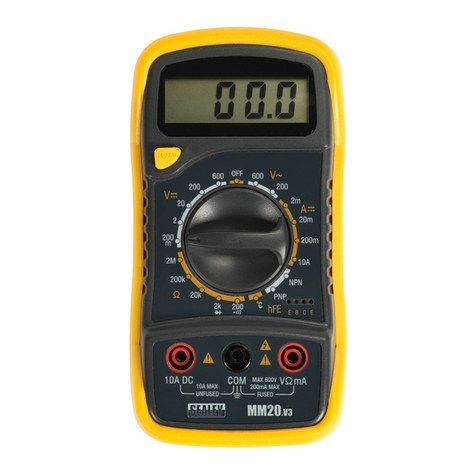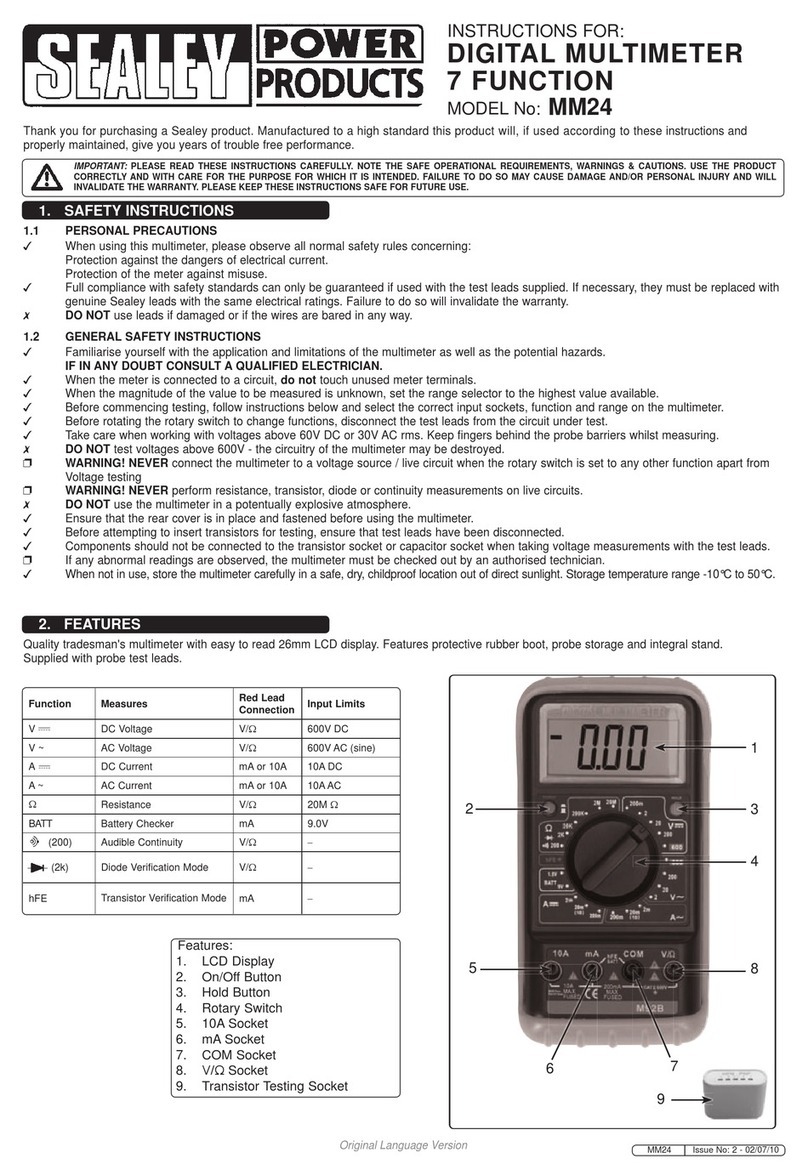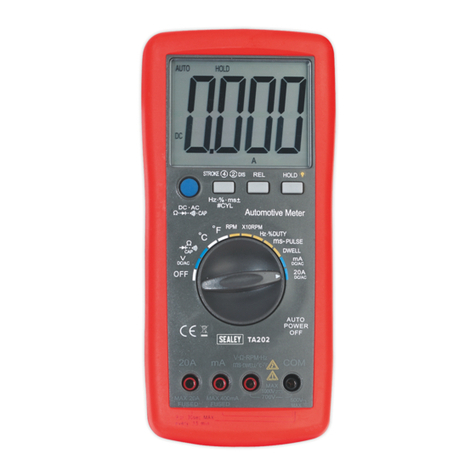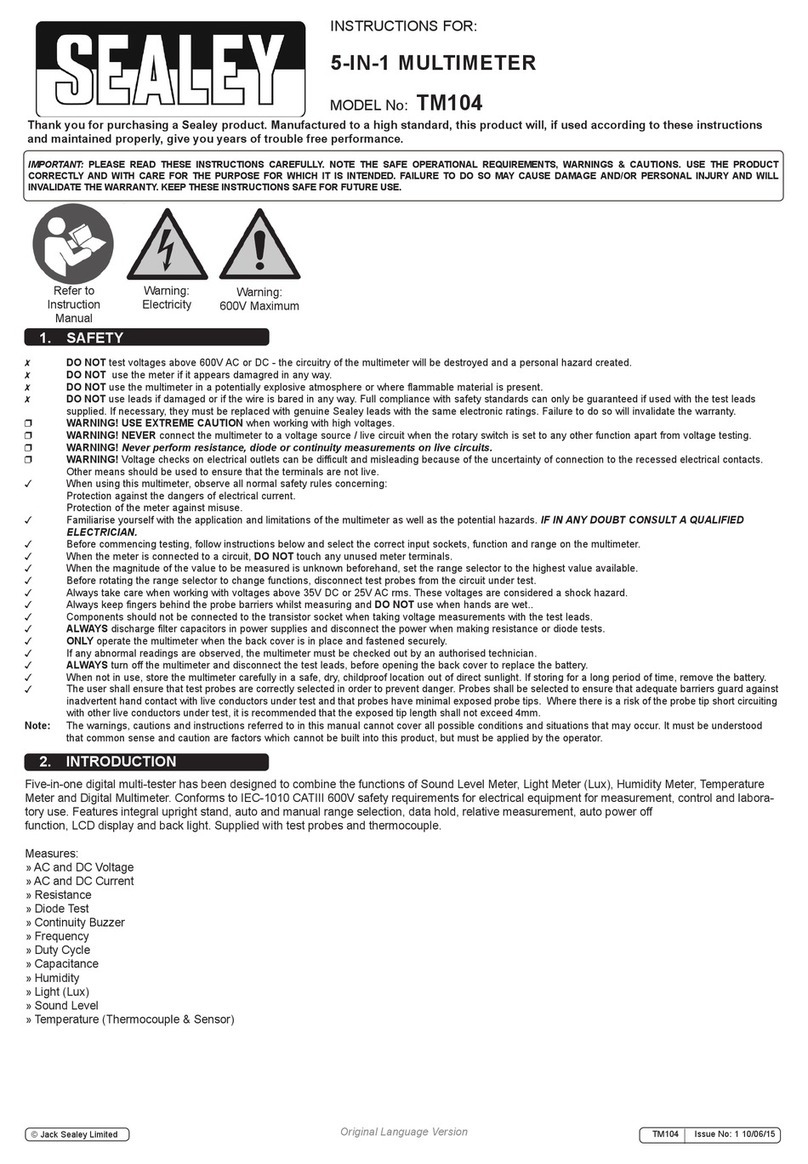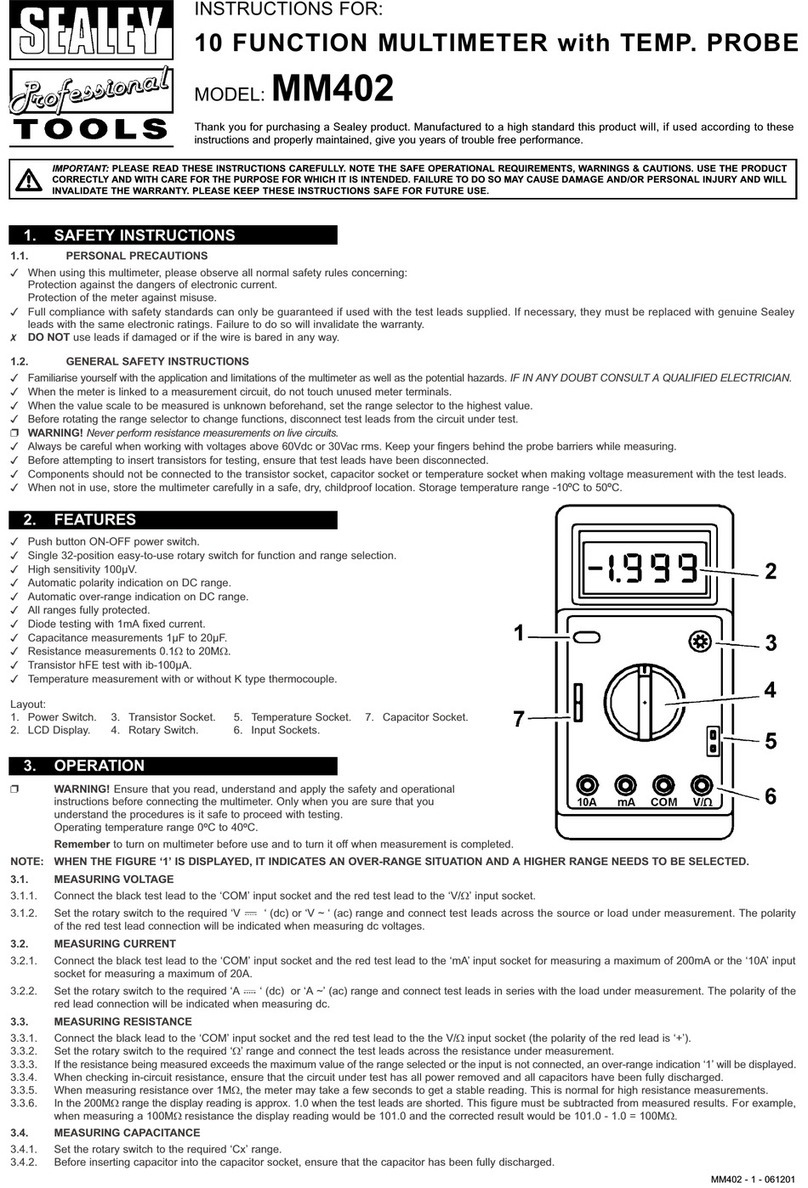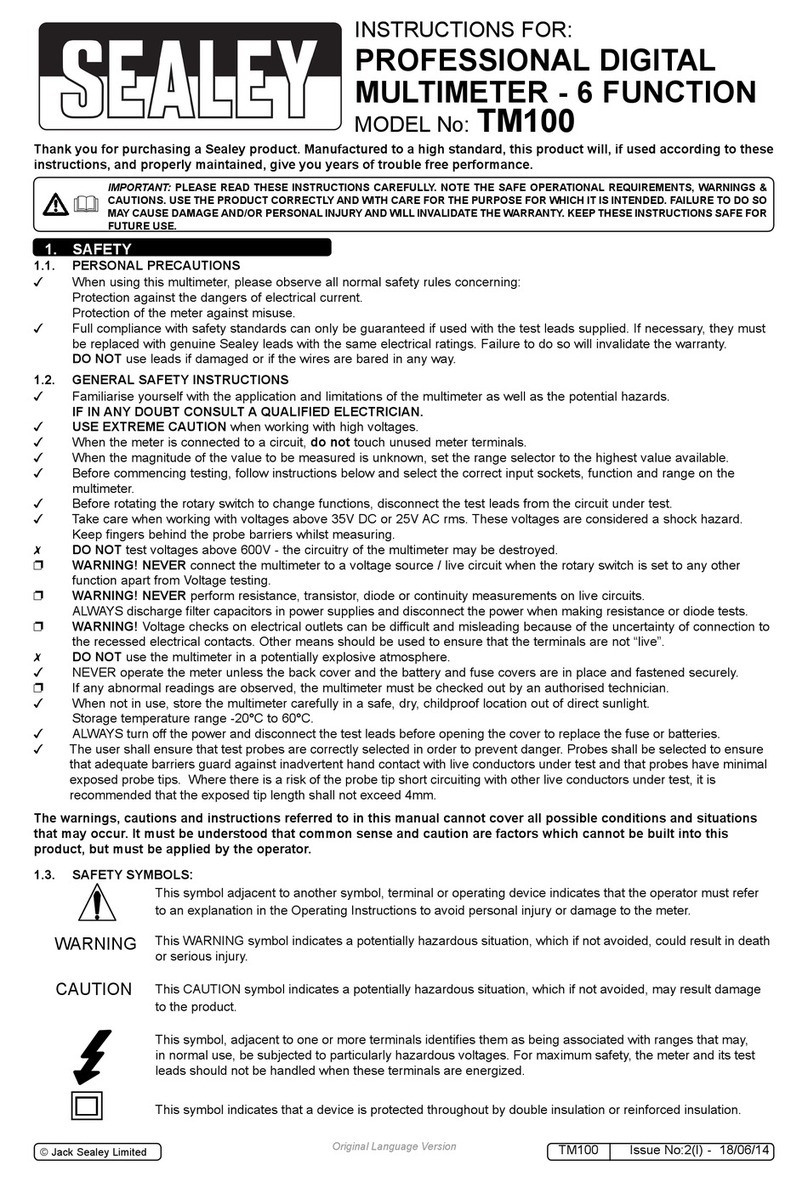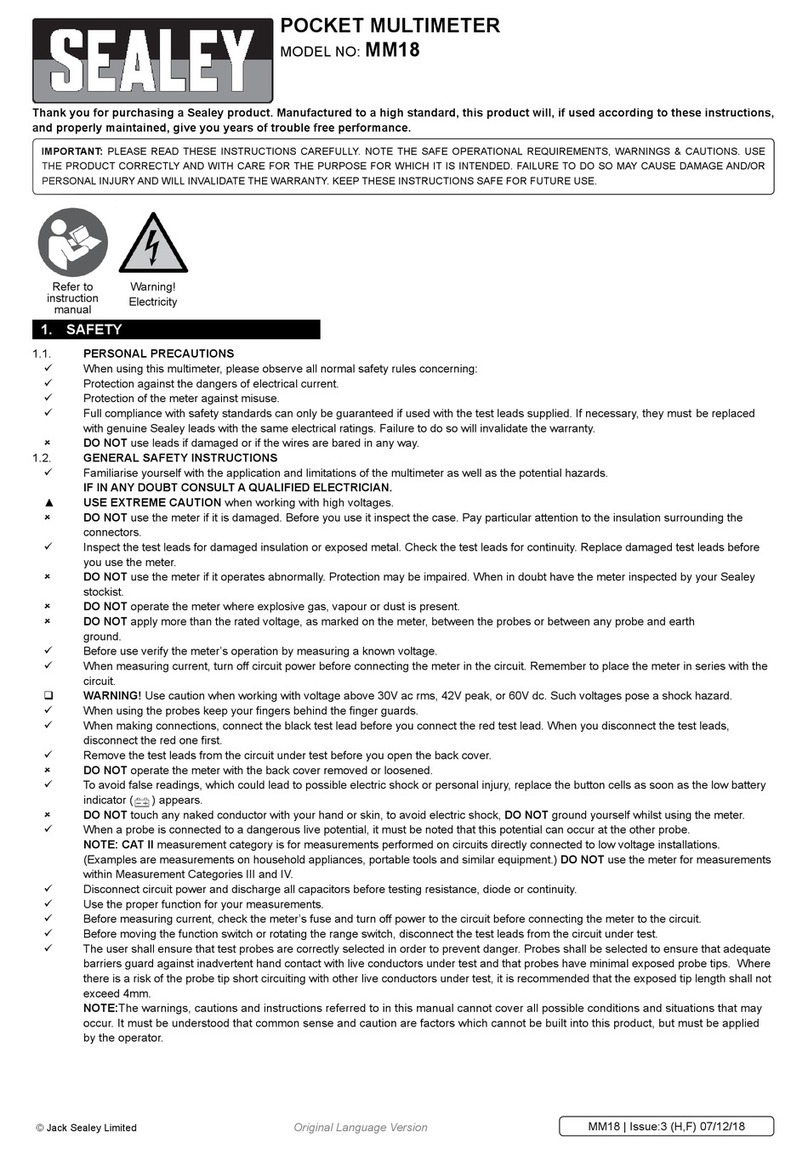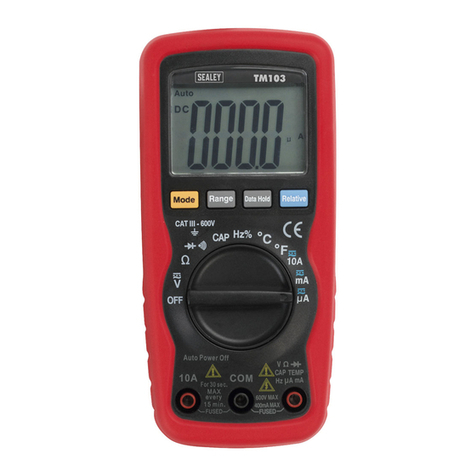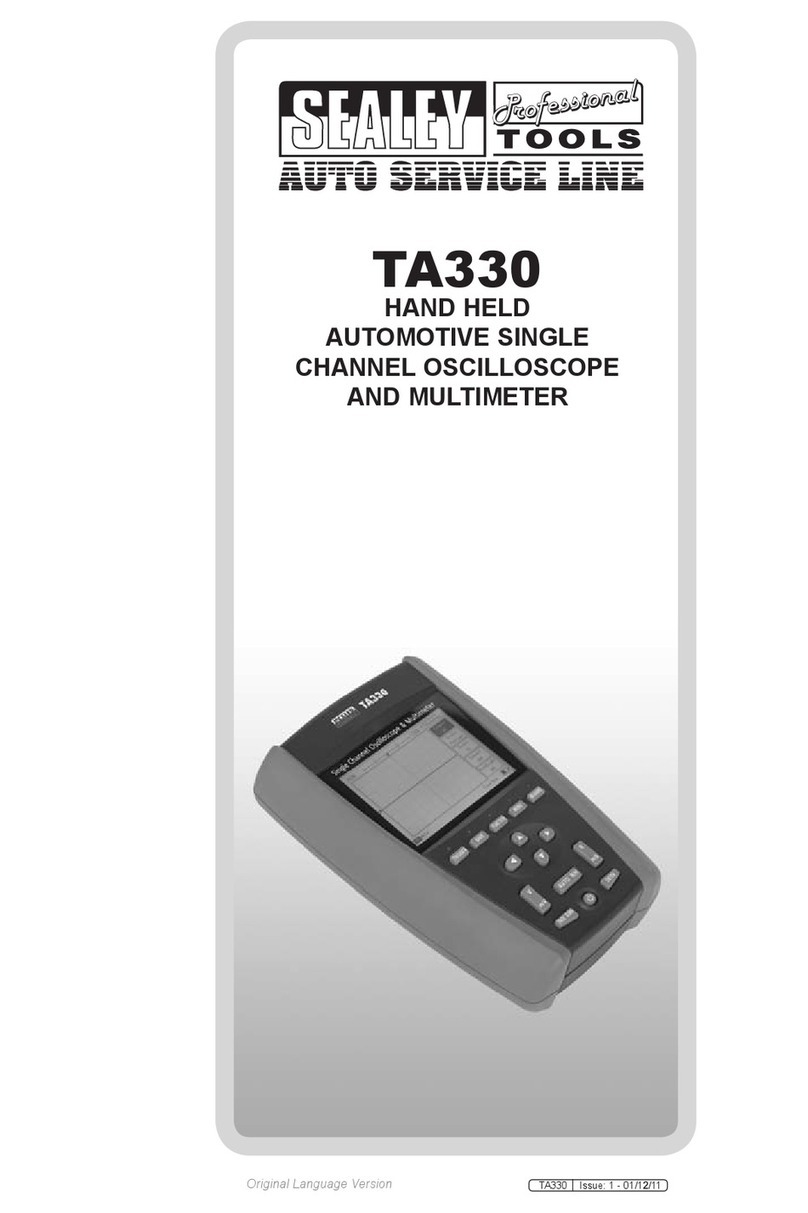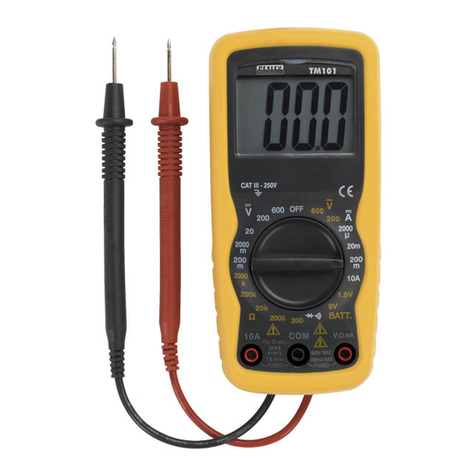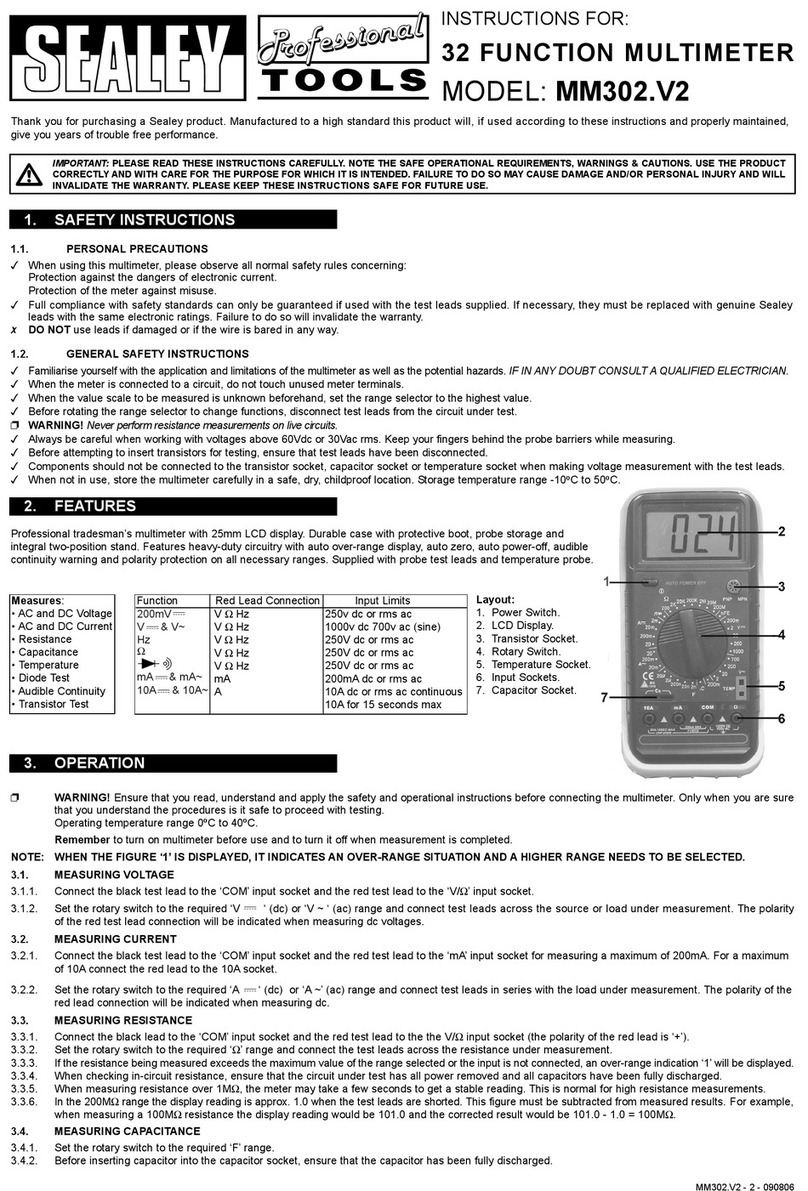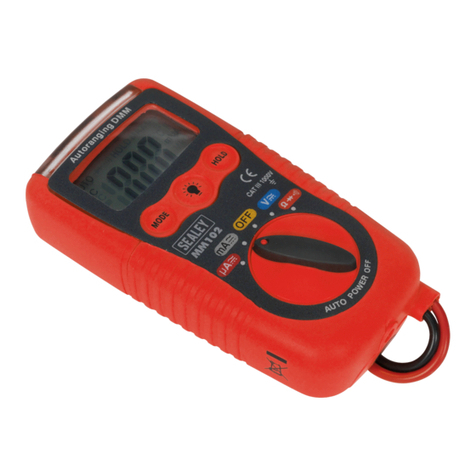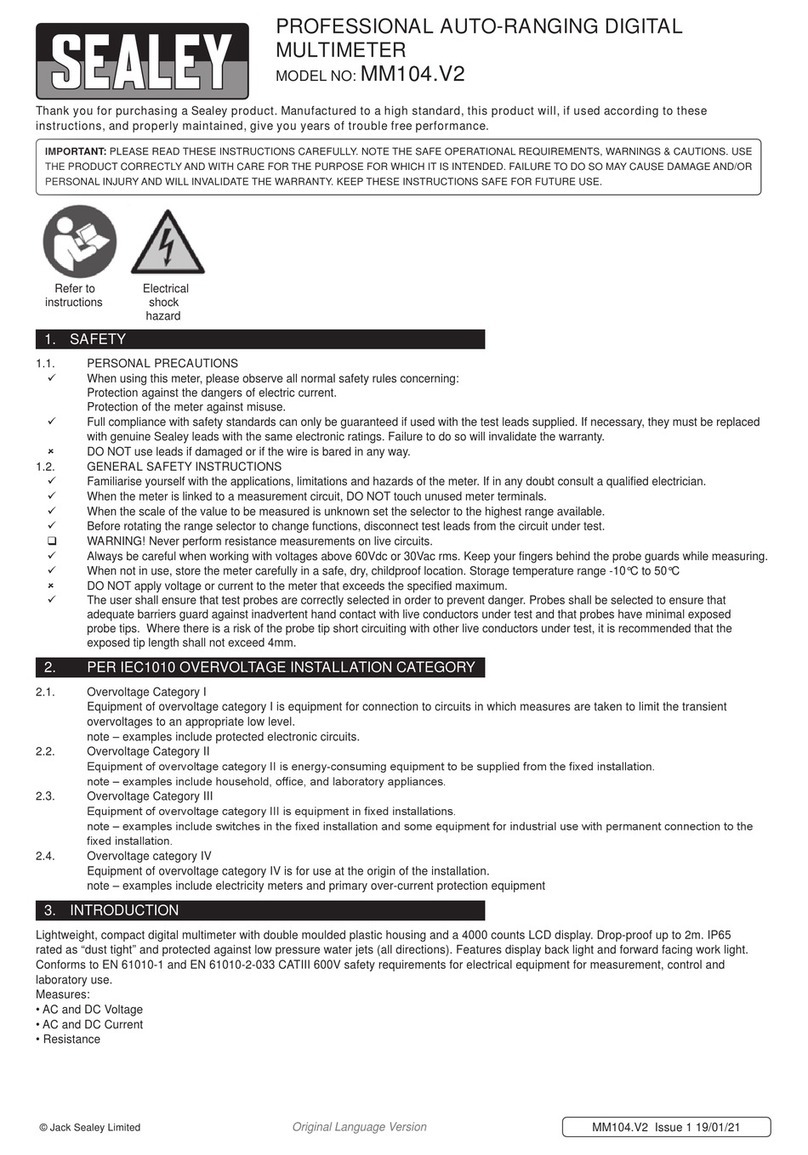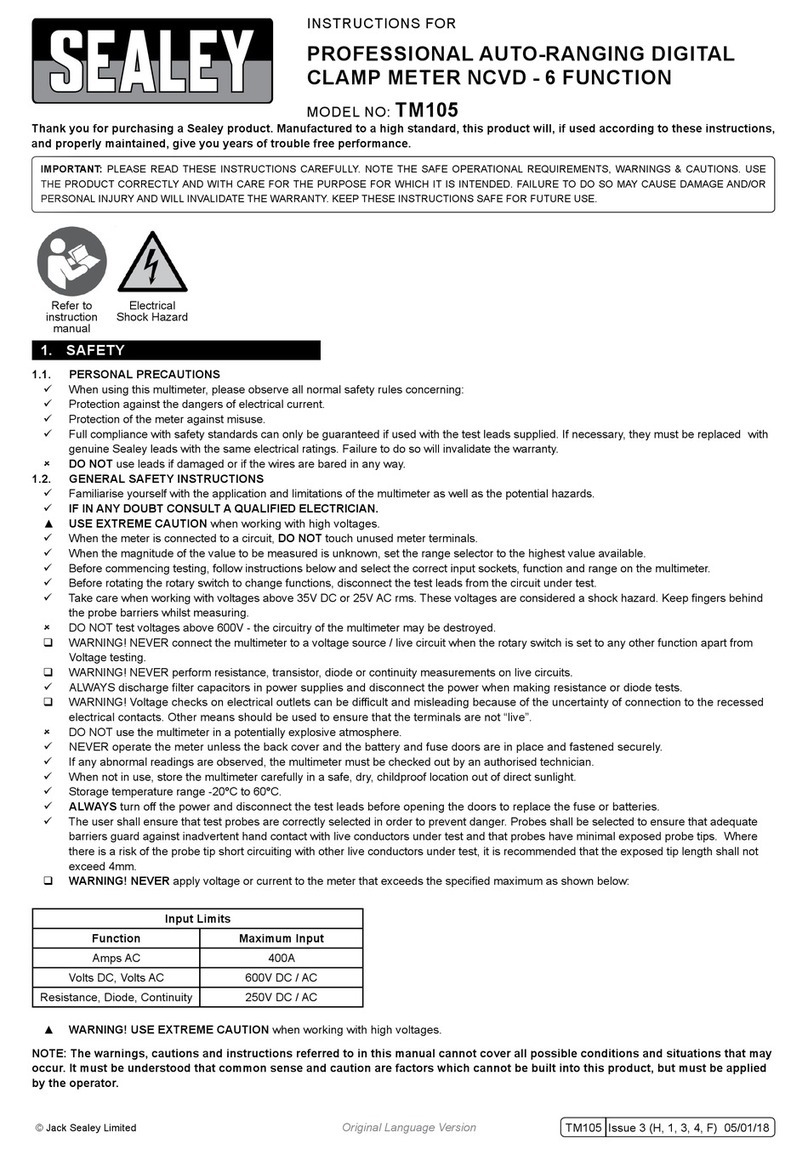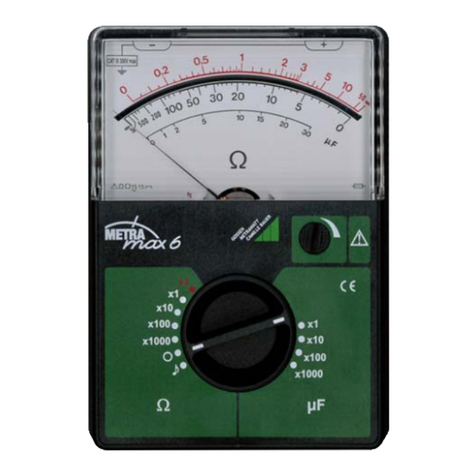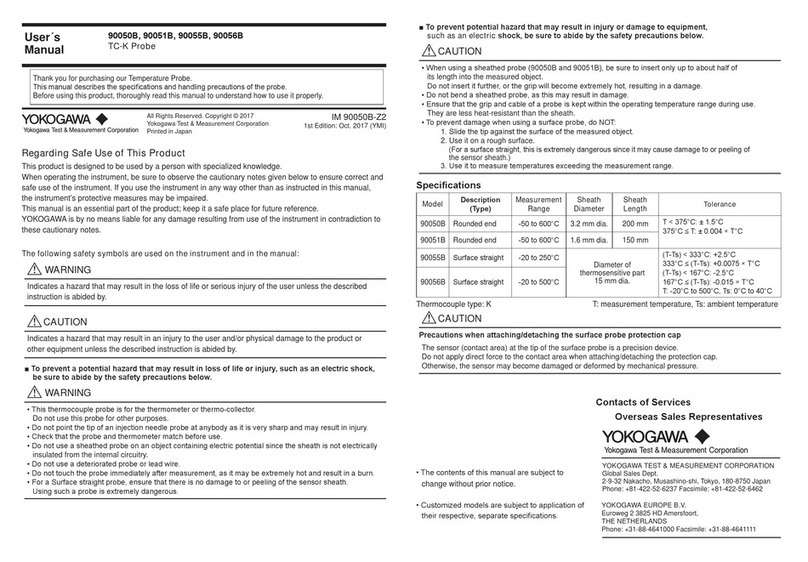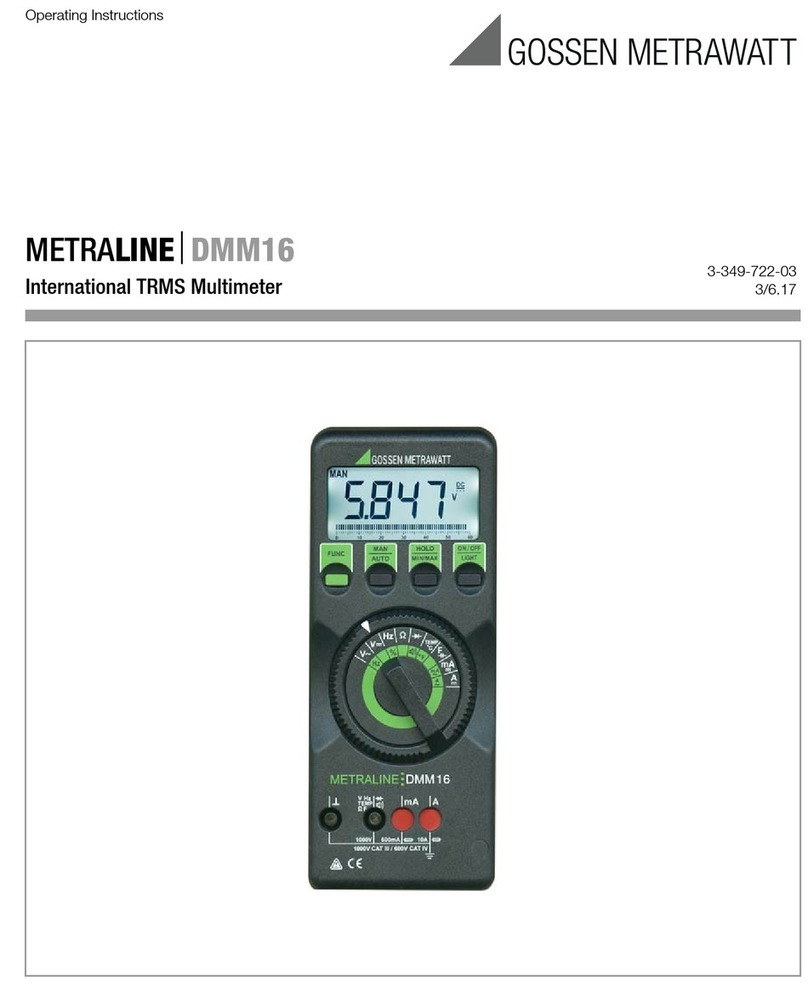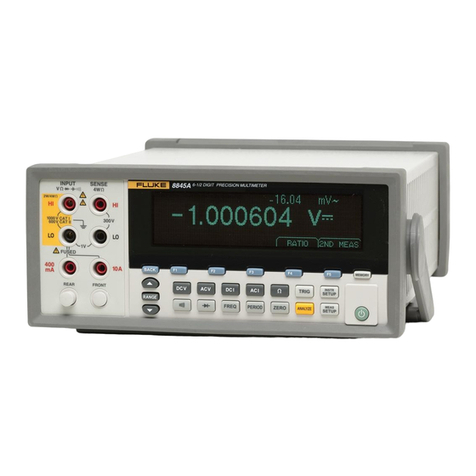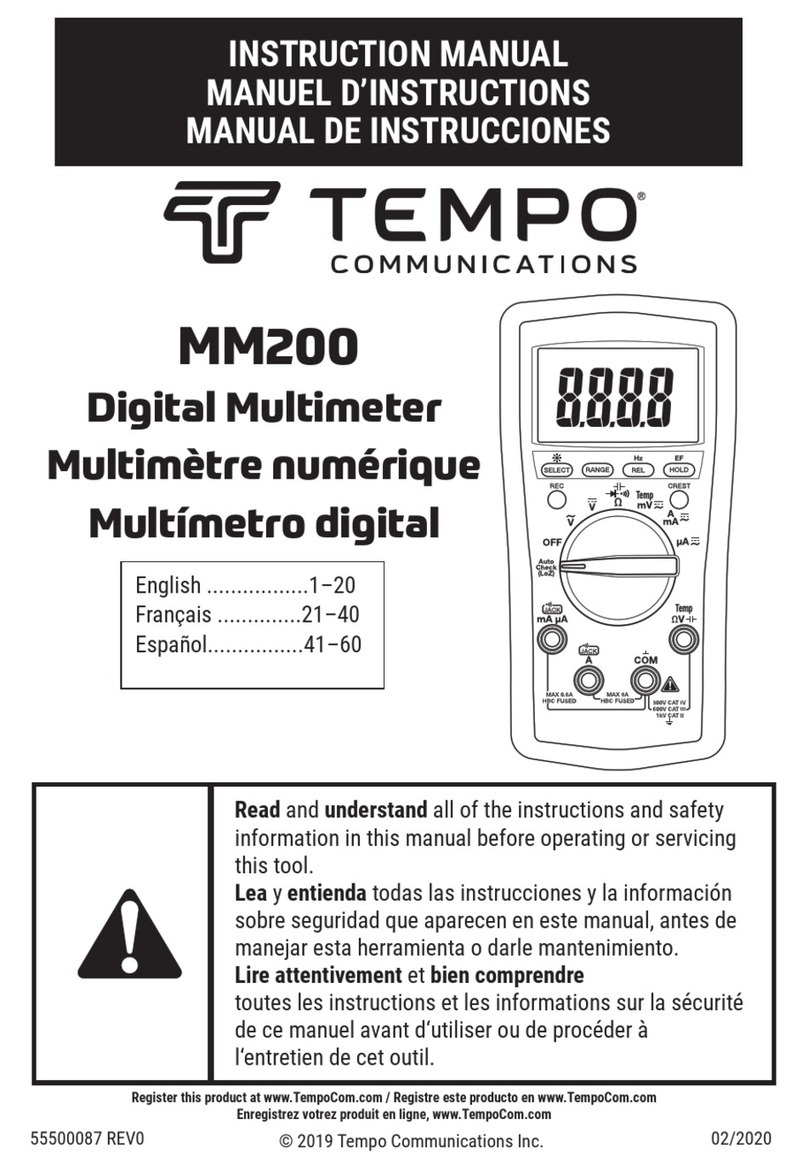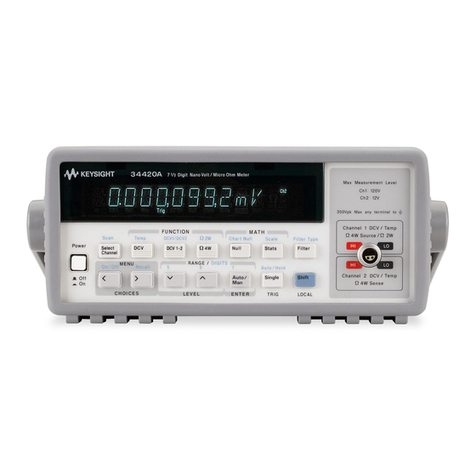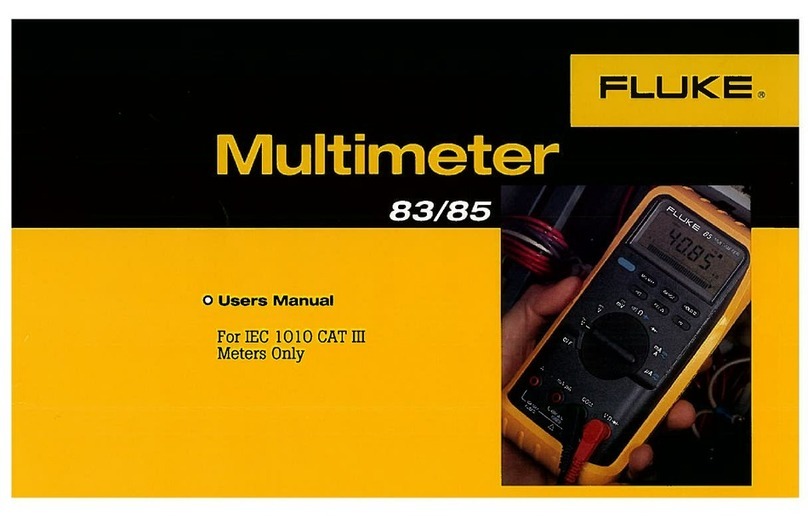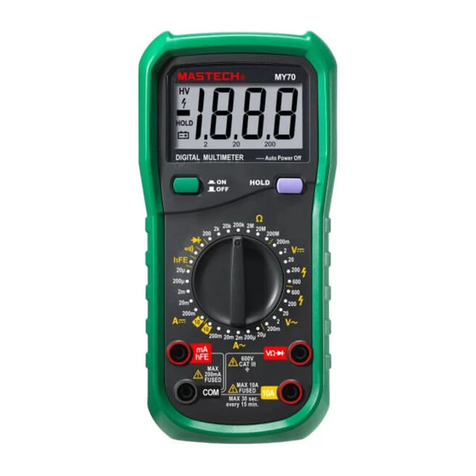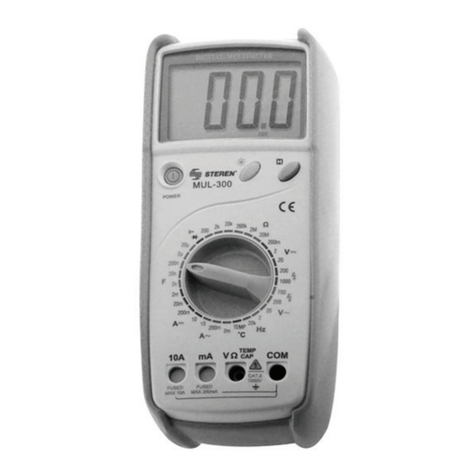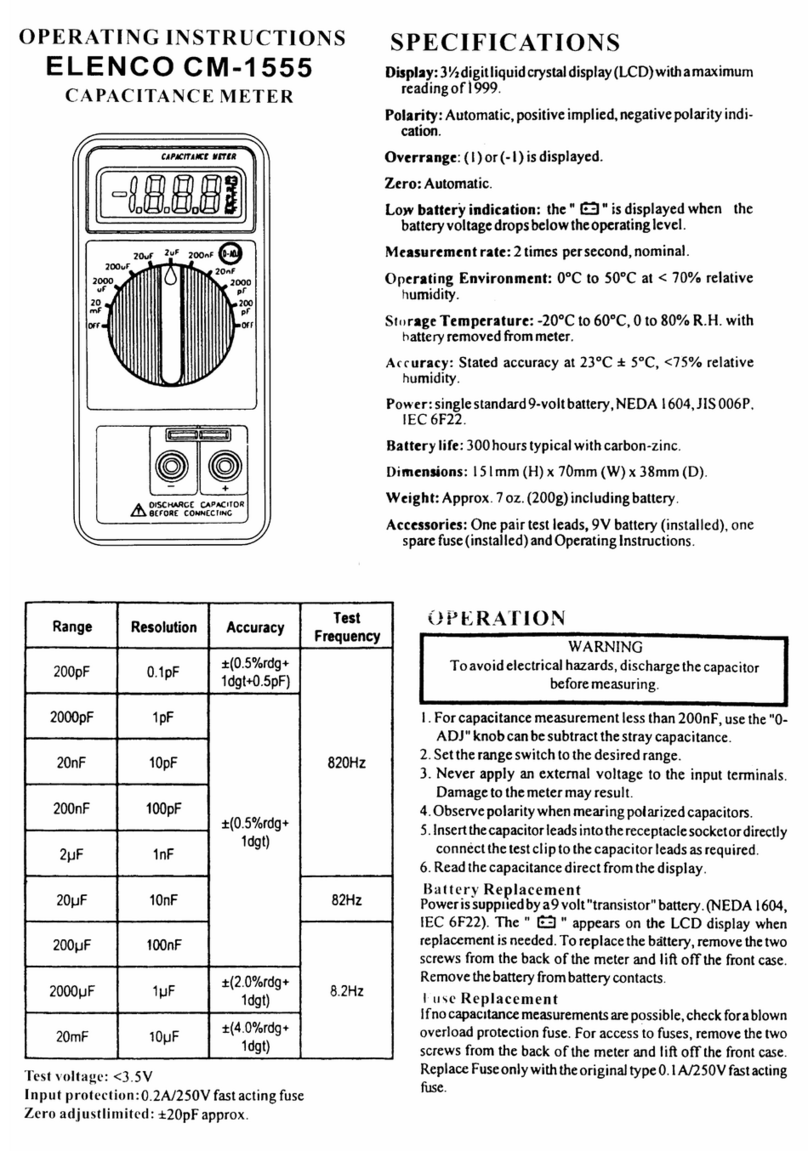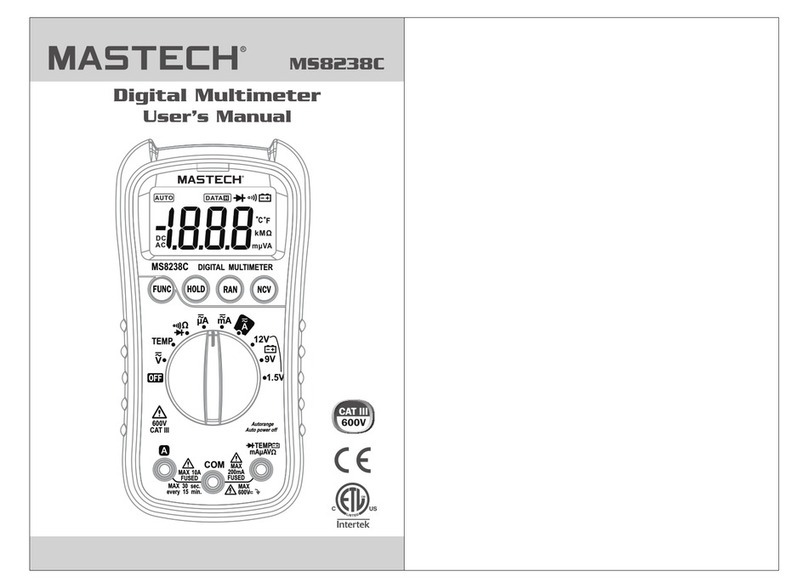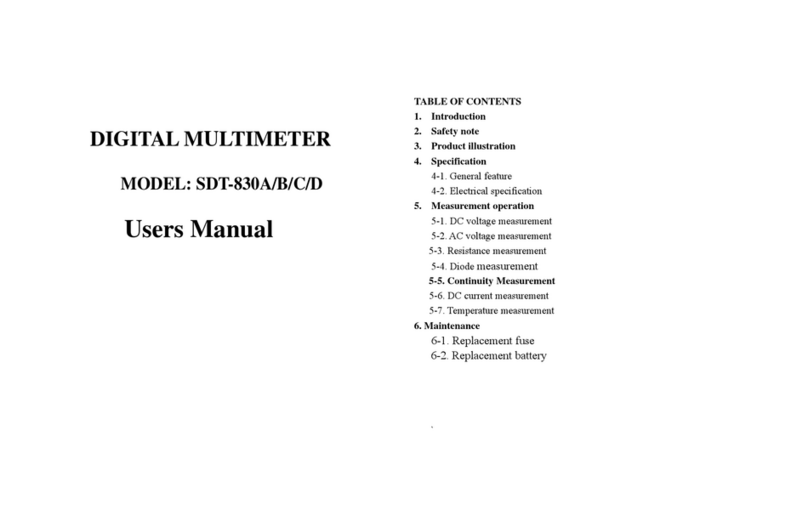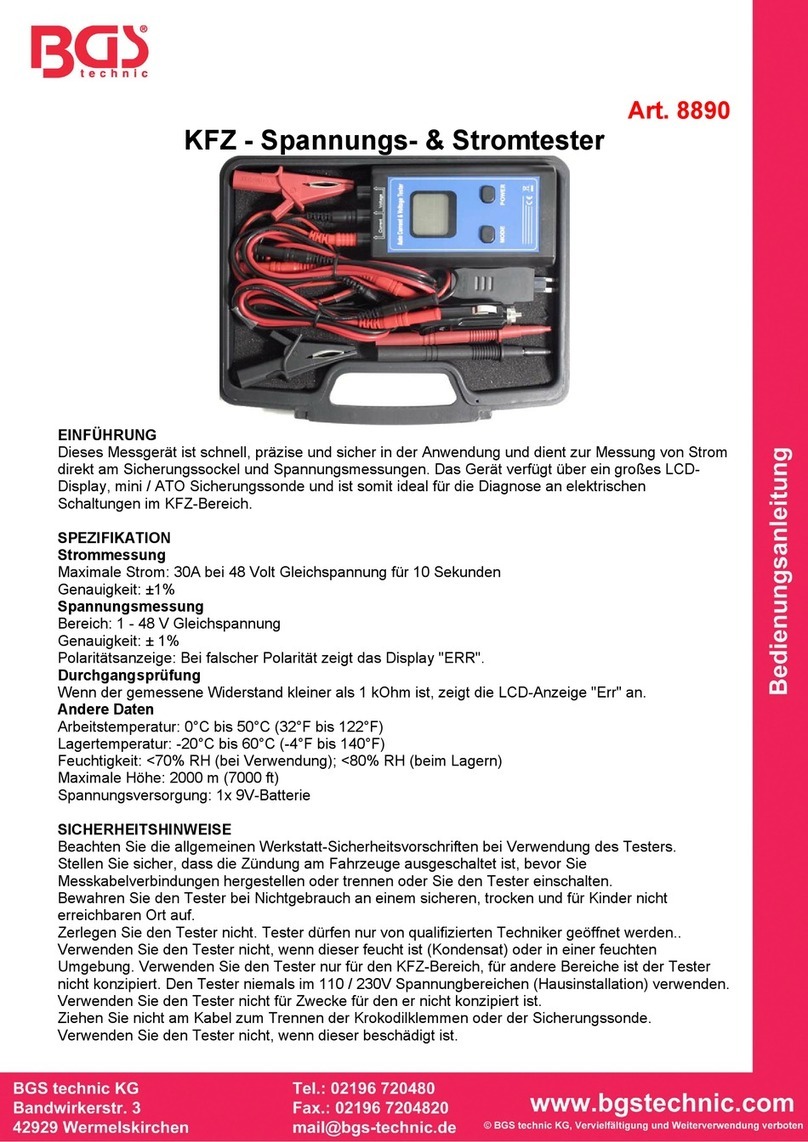
AC VOLTAGE
Range Accuracy Resolution
200V ±1.2% of rdg ± 10 digits 100mV
600V ±1.2% of rdg ± 10 digits 1V
Overload protection: 600Vdc or 600Vac for all ranges.
Frequency range: 40Hz - 450Hz
Response: Average calibrated in rms sine wave.
TEMPERATURE
Range Accuracy Resolution
0°C to 40°C 1-50°C to 400°C 2400°C to 1000°C 2
-50°C
to
1000°C
± 5.0% of rdg
± 2°C
± 0.75% of rdg
± 3°C
± 1.5% of rdg
± 15°C
1°C
1. Built in temperature sensor within multimeter.
2. Temperature readings with thermocouple.
3.6 TRANSISTOR TESTING
3.6.1 Set the rotary switch to the hFE position.
3.6.2 Determine whether the transistor to be tested in NPN or PNP type and locate the Emitter, Base and Collector leads. Insert leads of the transistor into the
correct holes in the external transistor testing socket. Connect the black lead to the COM connector and the red lead to the VΩmAºChFE input socket.
3.6.3 The meter will show the approximate hFE value at test conditions of base current 10µA and Vce 2.8V.
3.7 CONTINUITY TEST
3.7.1 Connect the black lead to the COM input socket and the red lead to the VΩmAºChFE input socket (the polarity of the red lead is ‘+’).
3.7.2 Set the rotary switch to the position and connect the test leads across the two points of the circuit under test. If continuity exists (i.e. resistance less than
100Ω) the built-in buzzer will sound.
3.8 MEASURING TEMPERATURE
3.8.1 Set the rotary switch to the °C position and the LCD display will show the ambient temperature.
3.8.2 Insert the red lead of the K-type thermocouple plug into the VΩmAºChFE input socket on the front panel and the black lead into the COM. Now touch the
object to be measured with the thermocouple probe.
WARNING! To avoid electric shock, ensure that the thermocouple has been removed before changing to another function measurement.
5. MAINTENANCE
4. SPECIFICATION
WARNING! Before attempting to open the case, ensure that test leads have
been disconnected from measurement circuits to avoid electric shock hazard.
5.1 To change a fuse. The fuses are located on the back of the circuit board. To
gain access to the fuse, remove the protective rubber boot and the two screws
from the rear of the meter. Lift off the rear cover, replace the fuse and
re-assemble in reverse order.
WARNING! ALWAYS replace a fuse with one of the correct rating.
Fuse 1: 500mA/250V
Fuse 2: 10A/250V
5.2 If the battery sign appears on the LCD display, it indicates that the battery
should be replaced. Repeat the steps detailed in section 5.1 to remove the rear
cover, replace the battery (9V PP3) and re-assemble in reverse order.
NOTE: It is our policy to continually improve products and as such we reserve the right to alter data, specifications and component parts without prior notice.
IMPORTANT: No liability is accepted for incorrect use of this equipment.
WARRANTY: Guarantee is 12 months from purchase date, proof of which will be required for any claim.
INFORMATION: For a copy of our latest catalogue and promotions call us on 01284 757525 and leave your full name and address, including postcode.
4.1 Accuracy Calculation
Example: Test reading on 200Vdc range is 56.4V. Accuracy is ±0.8% of reading ±2 digit.
Reading ±2 digit = 56.4 ±2 on the last figure i.e. 56.2 to 56.6V.
±0.8% on this range gives 56.2 - 0.8% to 56.6 + 0.8% or 55.7 to 57.1V. Therefore the actual voltage lies between 55.7 and 57.1V.
Note: Accuracy is specified for a period of one year after calibration and at 18°C to 28°C with a relative humidity of 80%.
MM20.V2 Issue No: 2 - 02/07/10
01284 757500
sales@sealey.co.uk
www.sealey.co.uk
01284 703534
Sole U.K. Distributor
Sealey Group
Bury St. Edmunds
Suffolk.
Web
TRANSISTOR hFE TEST (External transistor test plug)
Range Test Range Test Current Test Voltage
NPN & PNP 0-1000 1b=10µA Vce=2.8V
DC VOLTAGE
Range Accuracy Resolution
200mV ±0.5% of reading ±2 digits 0.1mV
2V ±0.8% of reading ±2 digits 1mV
20V ±0.8% of reading ±2 digits 10mV
200V ±0.8% of reading ±2 digits 0.1V
600V ±1.0% of reading ±2 digits 1V
Input impedance: 10MΩfor all ranges.
DC CURRENT
Range Accuracy Resolution
2mA ±1.0% of reading ±2 digits 1µA
20mA ±1.0% of reading ±2 digits 10µA
200mA ±1.2% of reading ±2 digits 0.1mA
10A ±2.0% of reading ±2 digits 10mA
Overload protection: Fuse 1: 500mA/250V
Overload protection: Fuse 2: 10A/250V
RESISTANCE
Range Accuracy Resolution
200Ω±0.8% of reading ±2 digits 0.1Ω
2kΩ±0.8% of reading ±2 digits 1Ω
20kΩ±0.8% of reading ±2 digits 10Ω
200kΩ±0.8% of reading ±2 digits 100Ω
2MΩ±1.0% of reading ±2 digits 1kΩ
Maximum open circuit voltage: 2.5V
Overload protection: 220Vdc or rms for a maximum
of 15 seconds for all ranges.
Environmental Protection.
Recycle unwanted materials instead of disposing of them as
waste. All tools, accessories and packaging should be sorted,
taken to a recycle centre and disposed of in a manner which is
compatible with the environment.
When the product is no longer required, it must be disposed of in an
environmentally protective way.
Battery Removal
See Section 5.2.1.
Remove and dispose of according to local authority guidelines.2.
